ACMP Board Member Marjana Rutkowski receives the title of Emeritus Citizen of Porto Alegre
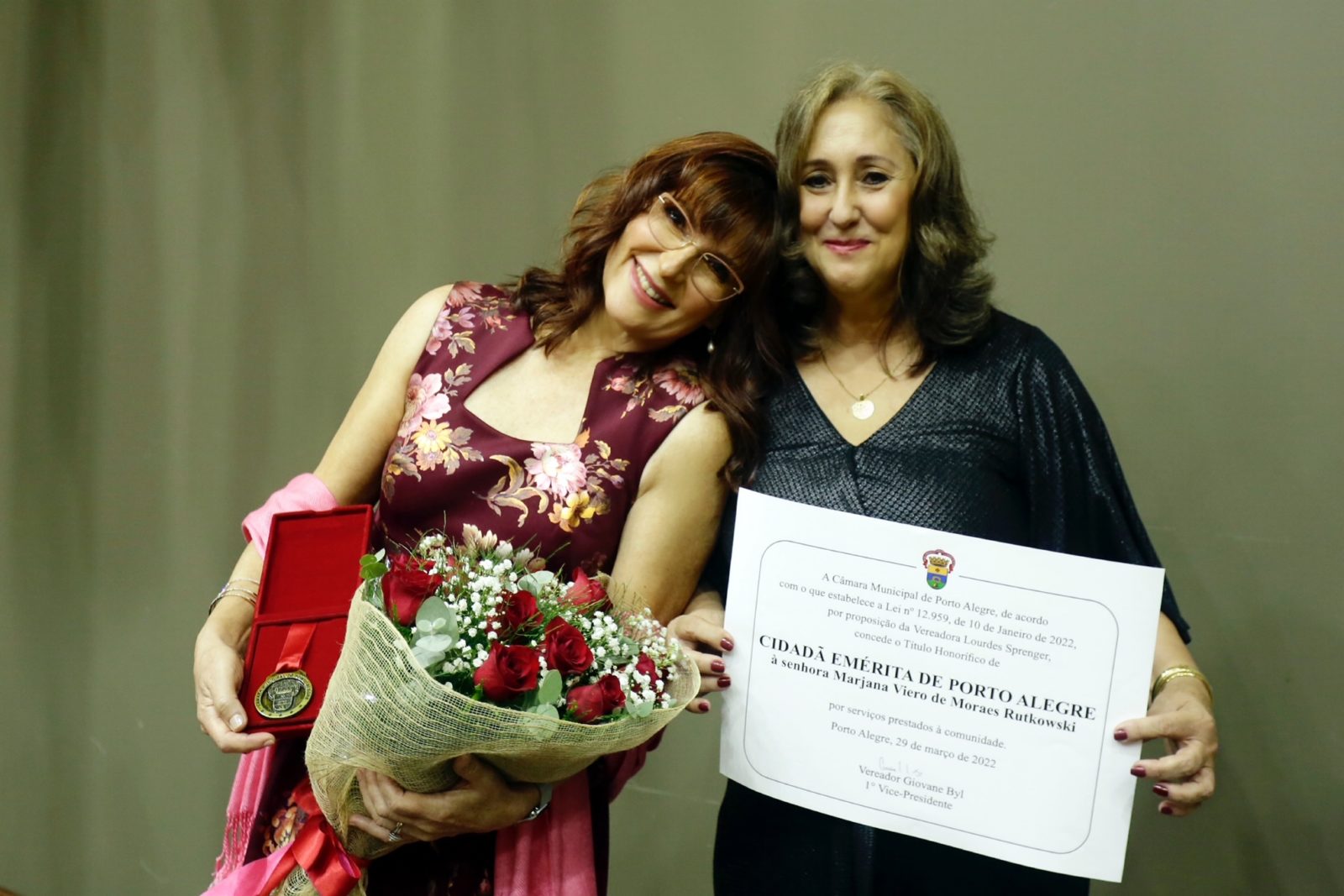
On March 29, 2022 ACMP’s first South American Board Member, Marjana Rutkowski (cellist from Brazil) was named an Emeritus Citizen of Porto Alegre at the municipal government’s Salão Nobre.
This is the highest award offered by the city of Porto Alegre. It was a lengthy process with many candidates, whose names were reviewed by four different commissions. The winners must receive two thirds of the vote by the final Chambers. Only sixteen people have been chosen to receive this honor over the past decades.
The award is in recognition of Marjana’s continuing work for the development of Brazil’s society and her cultural and artistic advocacy over the years.
Read her July 16 interview in the Correio do Povo:
Marjana Rutkowski: uma vida dedicada à música de câmara
(To read the article in any other language: copy the link to the original Portuguese article; go to Google Translate; select “Websites” and paste it in; and then select your language of choice.)
And – practice your Portuguese! Watch this video of Marjana receiving the award and giving her acceptance speech:
In case your Portuguese is rusty – here is a translation of Marjana’s speech (and you can read it in any language by using the “Translate” button on this site):
Good afternoon to all.
I am delighted to be meeting with you today, thanks to Councilwoman Lourdes Sprenger, whose sensibility made our encounter possible.
The choice of my name reflects an intangible process of recognition of the importance of the arts for all types of society.
How does this manifest itself, in this case, with chamber music, which is small groups of people playing together?
On an individual level, learning music develops cognitive abilities in both children and adults.
Recent studies on neurological plasticity reveal the benefits of this approach for all ages.
Chamber music is a music-making experience that brings people together by combining the strengths of individuals. It allows musicians to incorporate their personal voices, which are not usually heard in a large ensemble group (such as an orchestra), and emphasizes collaboration between musicians, something that the experience of playing as a soloist cannot provide. Chamber music promotes independent learning and fosters a unique interaction – you have to play, listen to your colleagues, recognize who has an essential part at any given time and adapt, perhaps compromise, and also recognize when it is time to take the lead. It is a visceral experience that exudes to other aspects of the participants’ lives.
From a young age, I have appreciated this intrinsic quality offered by chamber practice.
My involvement as a member of ACMP, the Associated Chamber Music Players, was a natural consequence.
The ACMP is a non-profit organization based in New York City. It is the only institution in the world that offers support and grants for chamber music playing.
For several years I have been the ambassador of Brazil to the entity. My work, in a timely and gradual manner, has expanded the ACMP’s reach beyond the northern hemisphere.
This broadening has allowed us to expand understanding and increase grants, contributing to projects in South America and Africa.
I was recently elected to the Board of Directors at the ACMP’s headquarters, being the first South American to hold such a position in the history of the ACMP, which celebrates its seventy-fifth anniversary in 2022.
Here I underline my gratitude to Dr. Henri van den Hombergh, director of the ACMP’s International Council, a physician beyond borders and a great humanist, who recognized my decade-long work and opened the way for us in the southern hemisphere.
Since 2020, support for Brazil has made possible meetings for all ages and levels of learning, as well as orientation for a student, bringing music closer to those who have not experienced it, strengthening the bonds of those who already know it through playing together online and in person, and making friends, all amid a pandemic.
I thank Dr. Mauricio Souza, bass player, a native of Porto Alegre, workshop director, and the first to engage with the ACMP in Brazil to make the dream of the essential formation process come true.
I congratulate the mentors and participants, particularly the children and parents who believe in this path.
Last week I arrived from a chamber music meeting in Prague, Czech Republic. I was inside the perimeter of the effects of the war in Ukraine. We saw refugees coming and witnessed small and large acts of solidarity every day. From there, I went to Vienna to visit a violist friend. Thanks to the support of the ACMP, we are organizing an encounter where participants take turns playing, the donations for which are non-perishable food items, then brought to a collection point for the refugees.
Now I would like to stress the importance of all of you as part of the aesthetic experience with the artists.
For John Dewey and Maxine Greene, two 20th century philosophers, the discussion about art and its meaning go beyond the idea of art for art’s sake.
Instead, they consider art as a component of human experience, essentially cognizable and accessible to all.
Dewey’s theories arose from the premise that we need to understand art not simply as an intellectual pursuit but rather by the possibility that art thrills at a deep level; some would say it thrills the soul. It is a complete engagement from an emotional, intellectual, and spiritual standpoint.
Greene develops many of Dewey’s topics, including the conviction that we cannot attend passively to a work of art.
But then, to fully experience the soul-thrilling quality, the person perceiving the art needs to bring an energy, an awakened energy, and an open receptivity to the possibilities likely to be surprised in the artwork.
Aesthetic experiences require conscious participation in a work of art, an exhaustion of energy, and an ability to perceive what is to be noticed in the piece, the poem, the quartet.
Knowing, even in the most formal academic mode, is entirely different from constituting a fictional world imaginatively and entering it perceptively, affectively, and cognitively.
Both philosophers define the aesthetic experience by suggesting it is transformative.
Now we will project a segment of the short film “Twelve Pandemic Scenes” by the artistic director Rita Zanini from Porto Alegre, which deals with twelve distinct facets that the pandemic showed as an impact on human relations in general.
The project director invited me to choose the music and represent the artist, more specifically the performance artist, living with the vicissitudes raised by the pandemic.
Rita very kindly agreed to offer us the scene even before the film’s premiere. I also thank Pedro Castello for filming, Elaine Geissler and Carlos Henrique Ludwig for audio production at Sound Trek Music, and Voilà Conteúdos e Memórias for complementary sound and image production.
I am honored by this tribute, celebrated together with the 250th anniversary of our city, during the month dedicated to all women.
I invite you now to “thrill your soul” with the beautiful love theme from the movie Cinema Paradiso, composed by Ennio Morricone and his son, in an artistic recreation by the group of people mentioned earlier.
May this appreciation be the continuation of a path that delights and fraternizes us through art.
Thank you very much.
– Marjana Rutkowski
More Articles
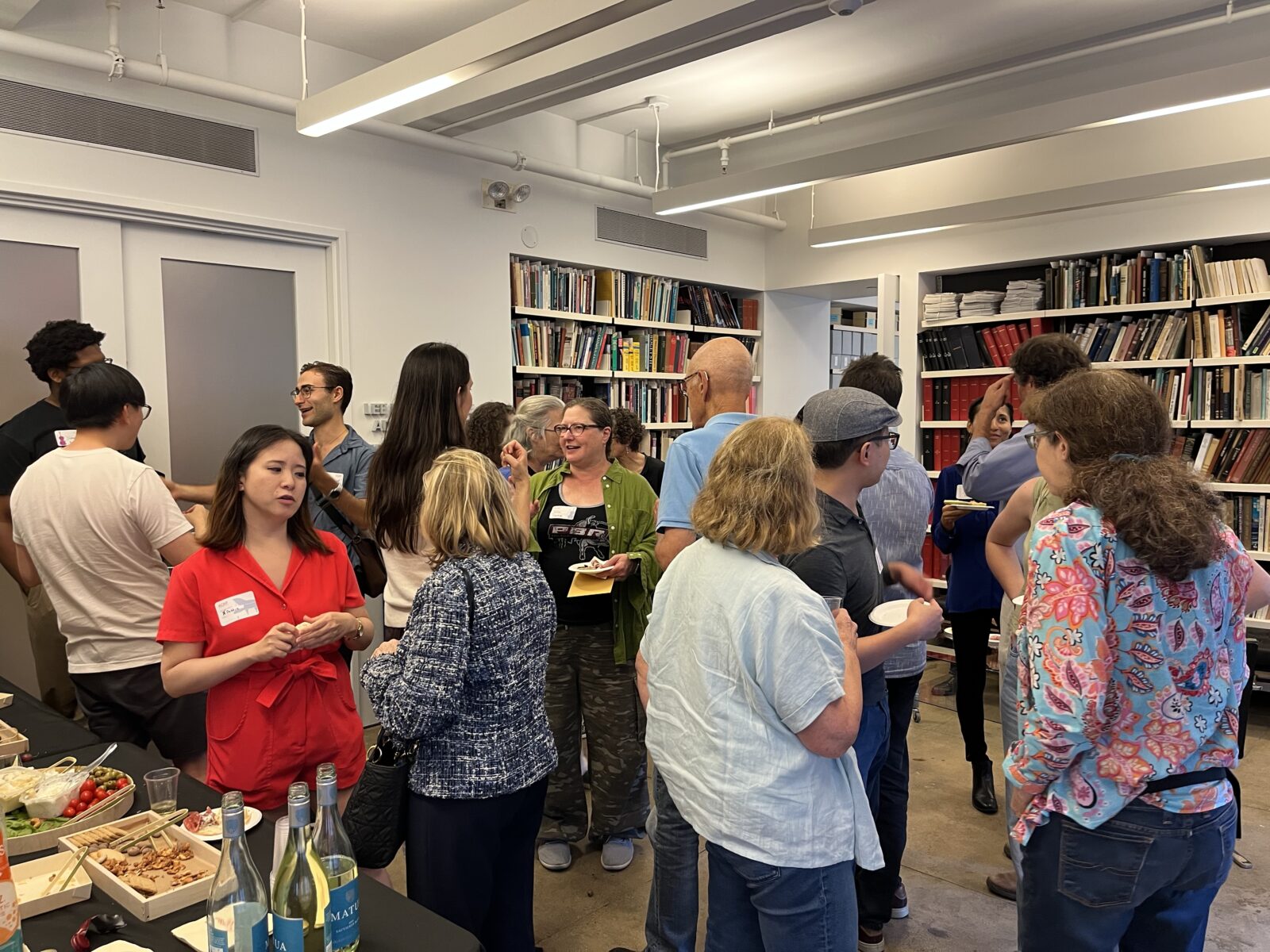
The Great American Play-In: ACMP and ACO
On Saturday, September 13 ACMP embarked on its first collaboration with the American Composers Orchestra (ACO). Together we organized a Play-In focused entirely on music by twentieth and twenty-first century American composers. Over the course of three hours, forty-five musicians discovered sixteen pieces or sets of pieces by a wide range of American composers, spanning from 1896 through 2025.Read More ↗
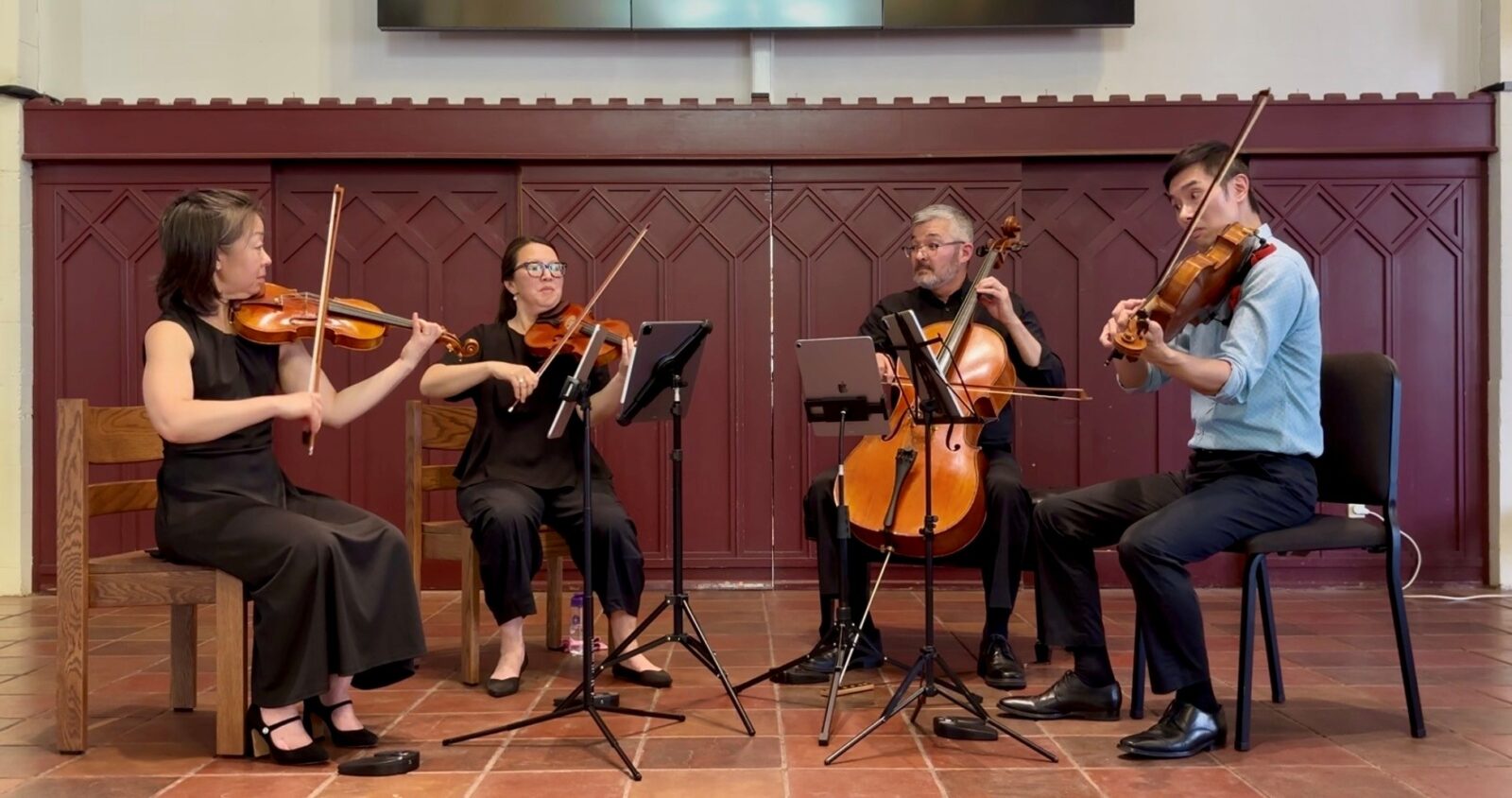
Just Play Concert: Exploring New Voices and Old Masters with the Tarka String Quartet
Thanks to a “Just Play” grant from ACMP, the Tarka String Quartet—Sue Soong and Julie Park on violin, Kevin Jim on viola, and Angus Davol on cello—recently shared a program in San Diego that reflected their passions: exploring new voices by women composers alongside the great works of the quartet tradition.Read More ↗
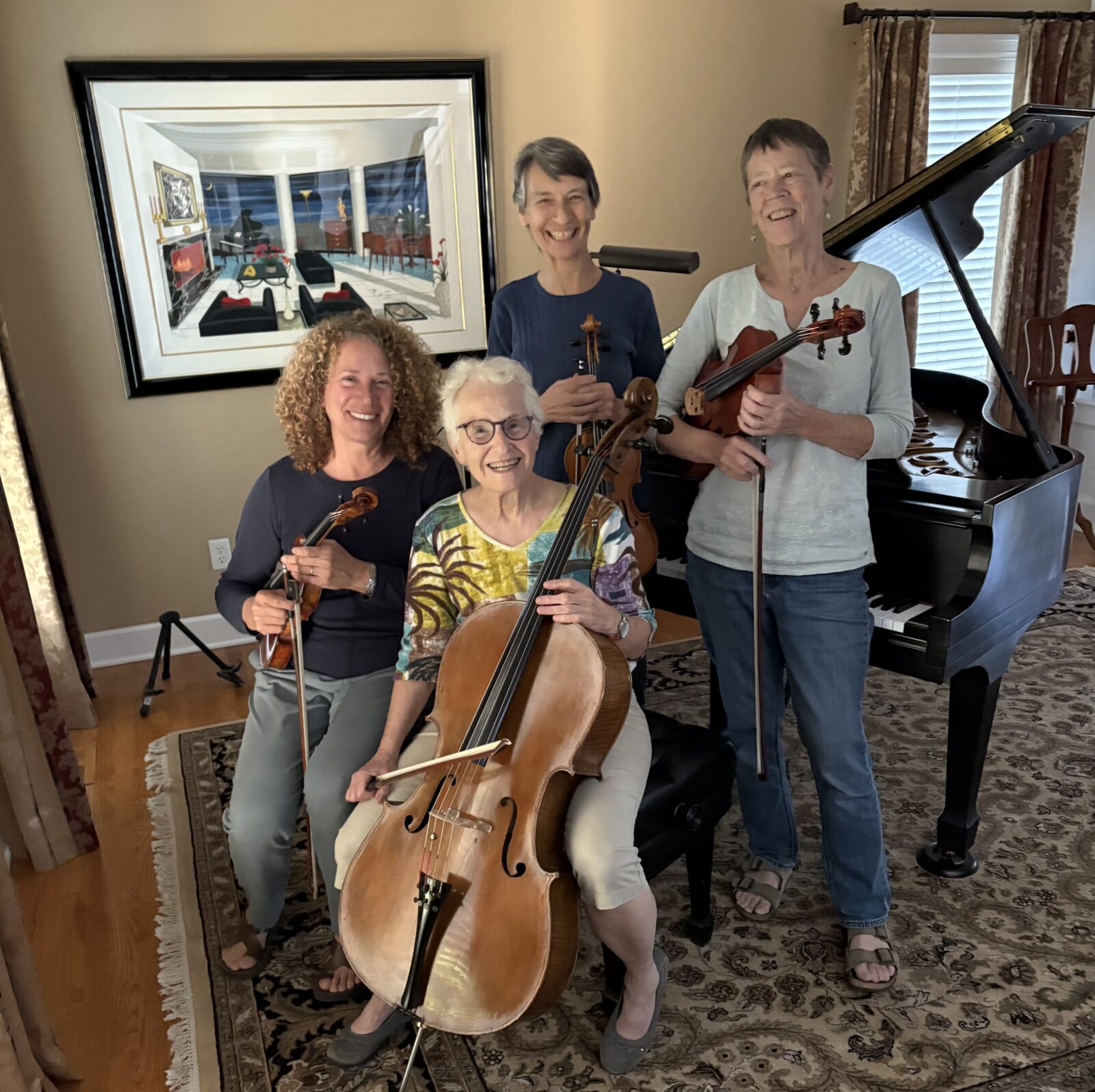
ACMP Members of the Month – October 2025
Playing in a regular string quartet is kind of like having a regular foursome in golf – everyone needs to be of roughly similar ability, and they also need to get along. When those two dynamics come together, the result can be a lasting chamber group that brings enduring friendships. Such is the case with our Members of the Month for October – Ruth Sklarsky, Barbara McIver, Ellen Henry and Kathy Lewis, residents of the Rochester, N.Y., area who have played in a string quartet for more than a decade. They got together and collectively answered a few questions about their musical journey.Read More ↗
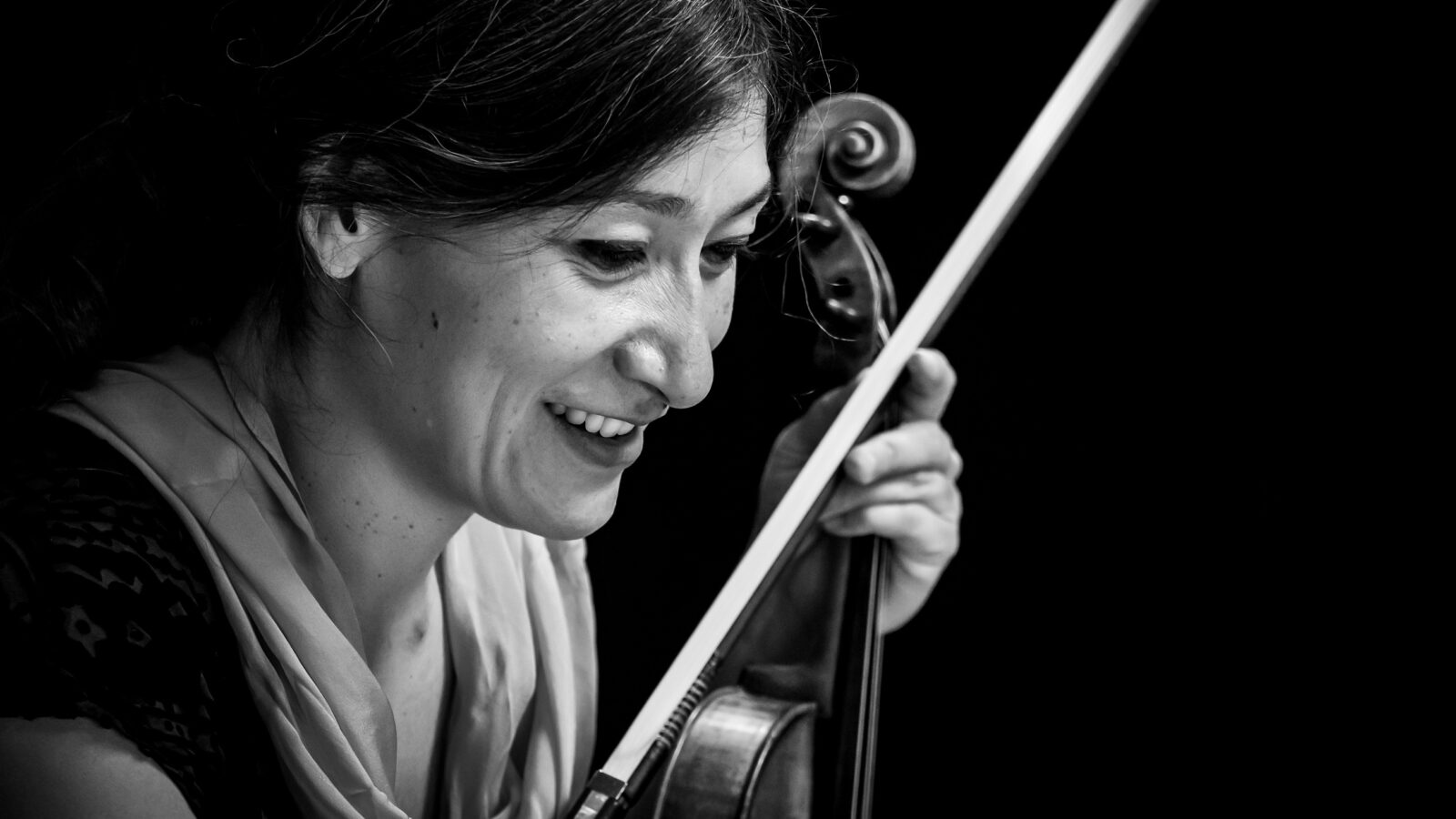
ACMP Event: Meet Harumi Rhodes
Join ACMP’s Executive Director Stephanie Griffin on Saturday, November 1 at 2pm Eastern time for a lively discussion and Q and A with violinist Harumi Rhodes. Harumi is the daughter of two famous chamber musicians: Stephanie’s former viola teacher, Samuel Rhodes (Juilliard Quartet) and violinist Hiroko Yajima (Mannes Trio.) Find out more about Harumi’s early life in that celebrated chamber music milieu, and about her journey as she established her own career as the second violinist of the world-renowned Takács Quartet.Read More ↗
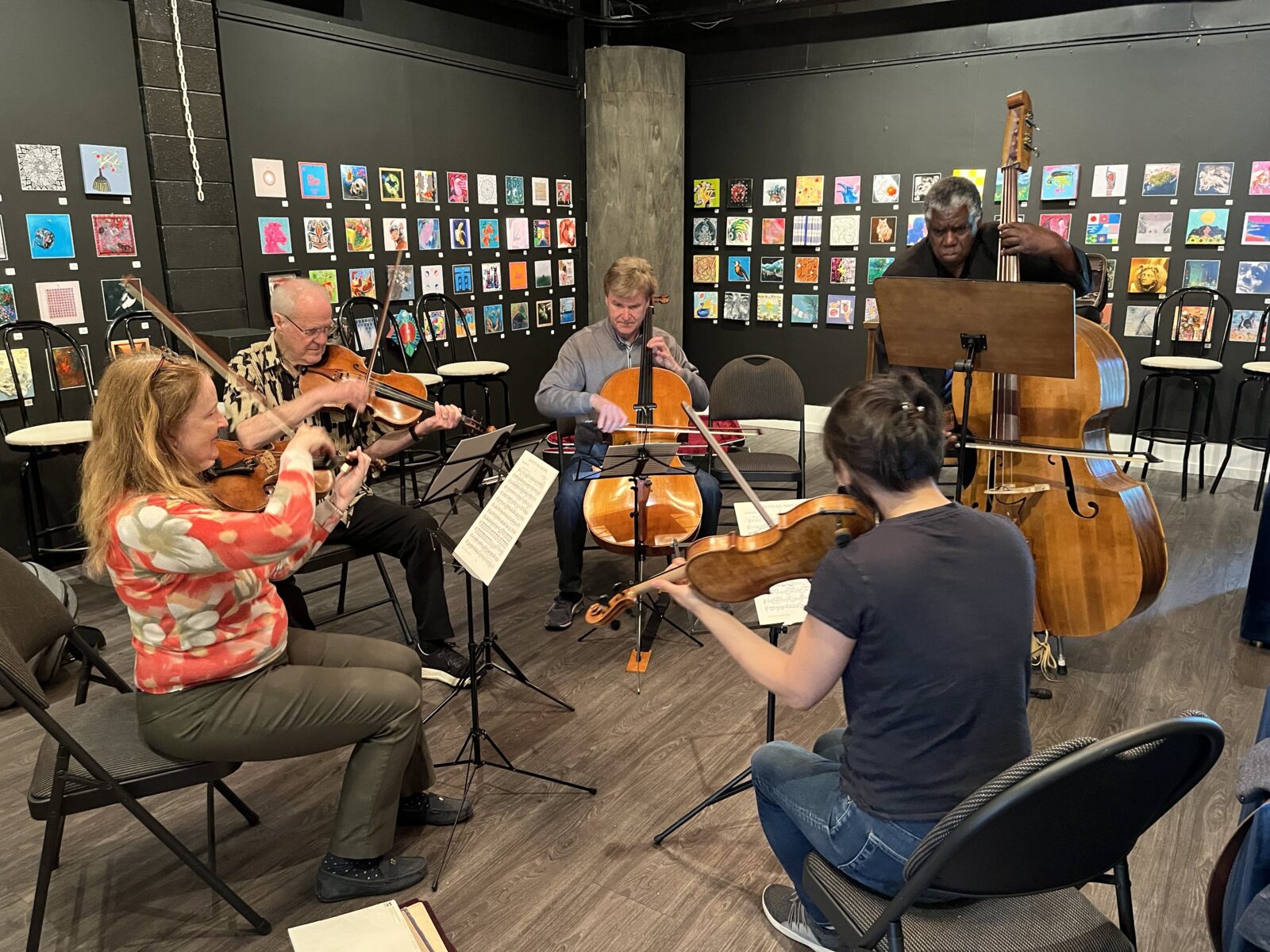
New guidelines for ACMP’s Workshop and Community Music Grant, deadline: October 24, 2025
ACMP's annual Chamber Music Workshop and Community Music grant cycle is open! Deadline: Friday, October 17. Read about the new guidelines and sign up for the Grant Information Session.Read More ↗
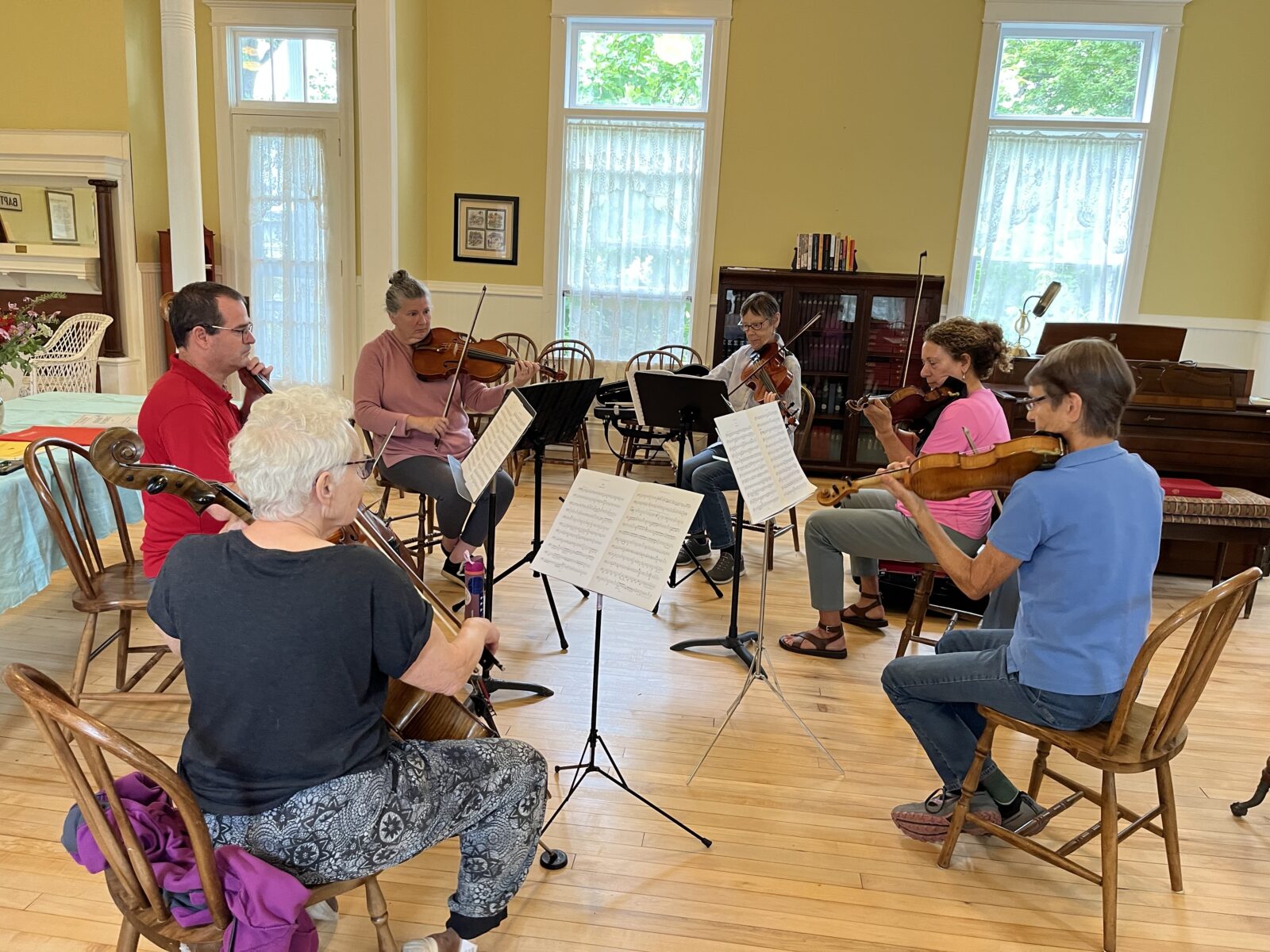
A weekend of music and renewal at Chautauqua
When you first set foot on the grounds of the Chautauqua Institution in southwestern New York, it’s easy to understand the lift in Arlene Hajinlian and Sonya Sutton’s voices when they speak about their summer homes, and why they would welcome a group of ACMP members for a weekend of music-making.Read More ↗
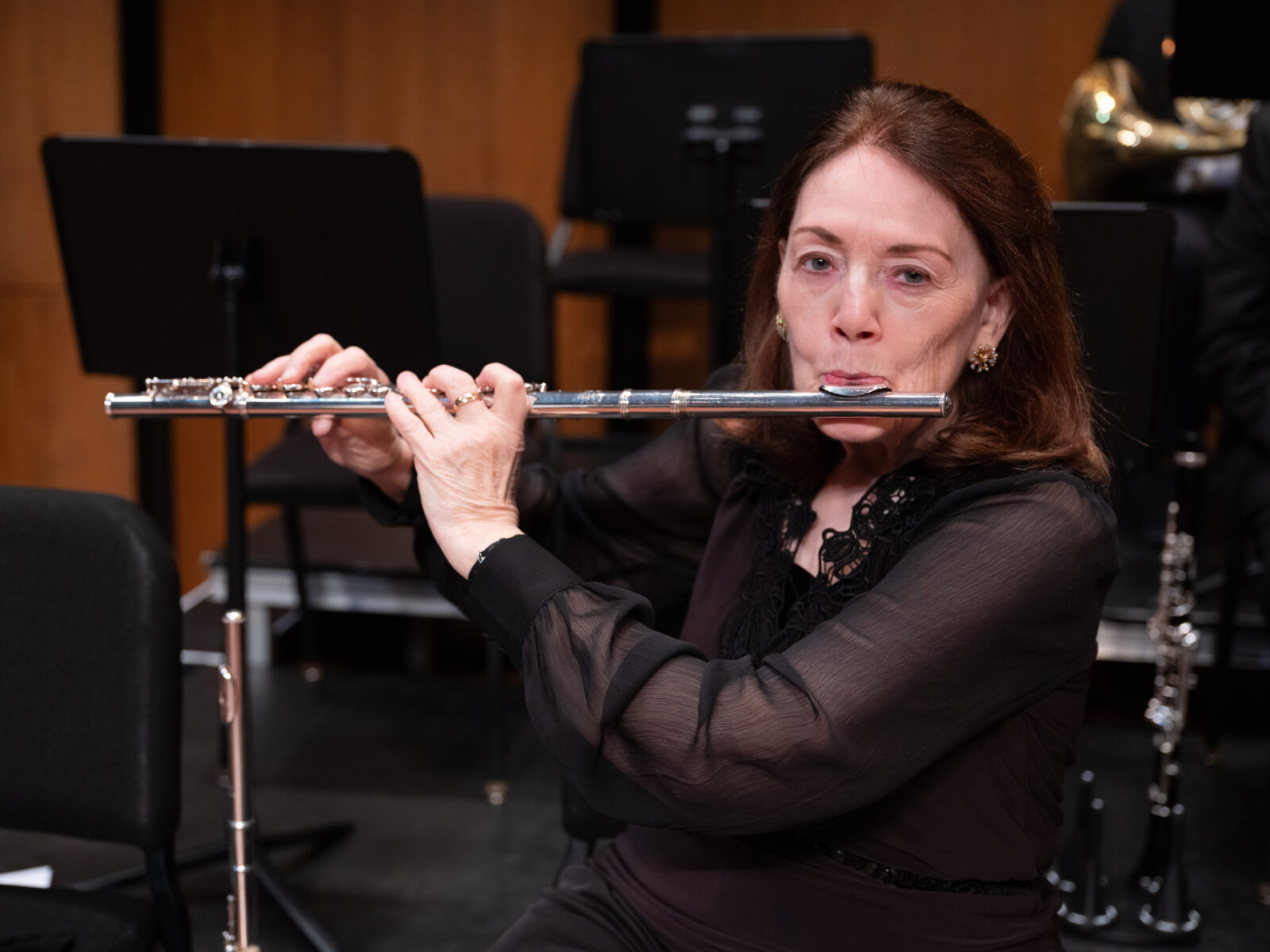
Optometrist by vocation, flutist by avocation
For someone who does not pay the rent as a musician, Pat Brown leads a full musical life with her flute. An optometrist by profession and a dedicated flutist, she has been a member of the Texas Medical Center Orchestra for more than 20 years, serving on the board and helping the group win national awards.Read More ↗
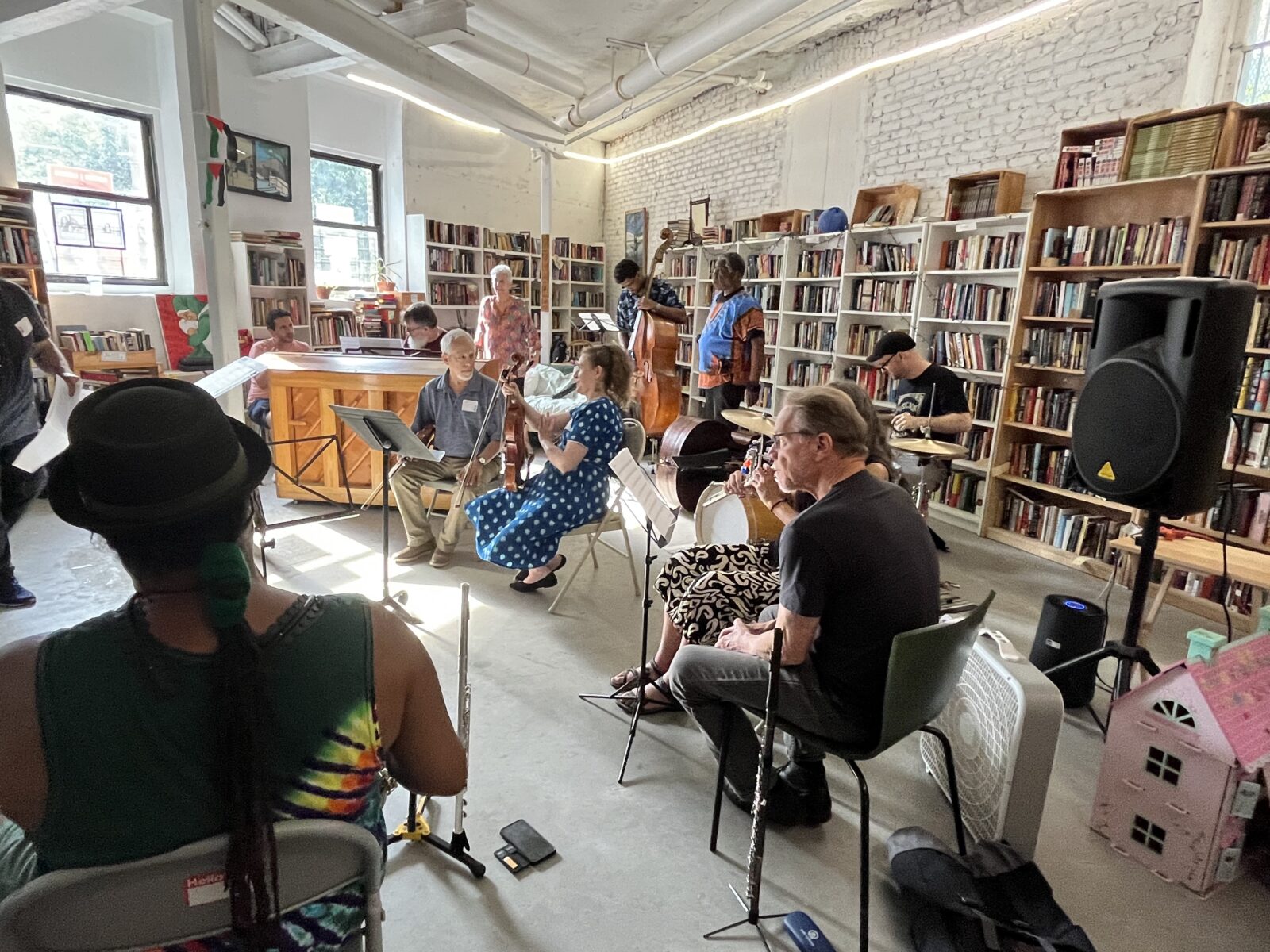
The Great American Play-In: Saturday, September 13 at Opera America
On Saturday, September 13 from 2 to 6pm, the American Composers Orchestra (ACO) and ACMP are hosting a fun and festive chamber music Play-In at Opera America (NYC), focused entirely on chamber music by twentieth-century and living American composers.Read More ↗
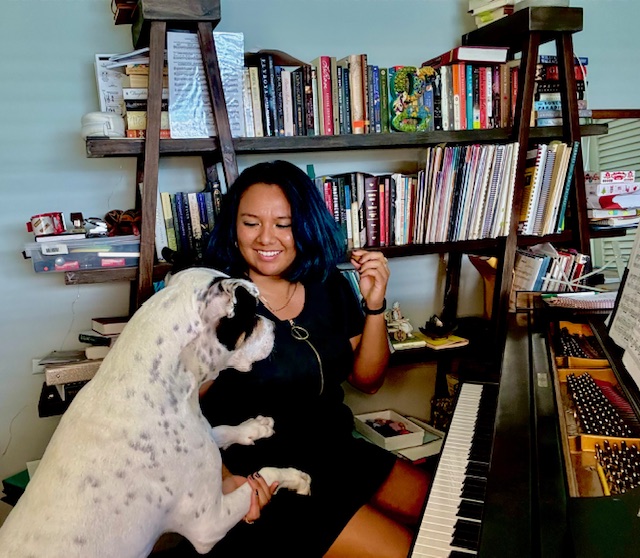
A professional pianist charts new musical paths with chamber music
When it comes to chamber music, ACMP pitches a big tent, from players just starting out to those rediscovering a passion for the music they played on their younger days. But ACMP’s membership also includes a thriving community of professionals — highly trained musicians who discover a community in ACMP that is hard to find elsewhere. Grace Shepard is one such professional living in South Florida and serving on ACMP’s North American Outreach Council.Read More ↗
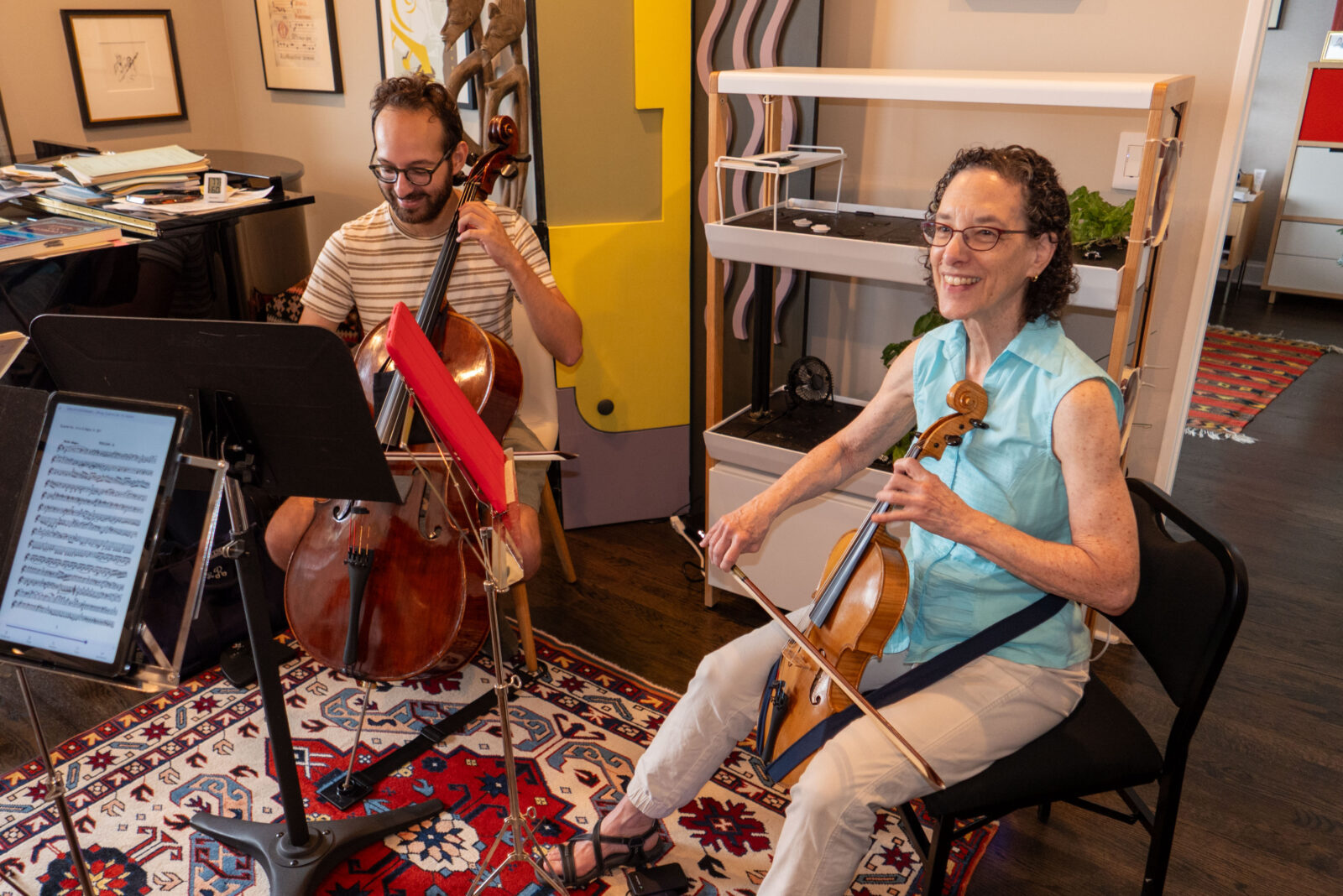
How a cellist learned to love the viola, her way
Chicago-area cellist Ruth Rozen recounts her adventures with a vertical viola, opening the door to playing the inner voices in chamber music.Read More ↗
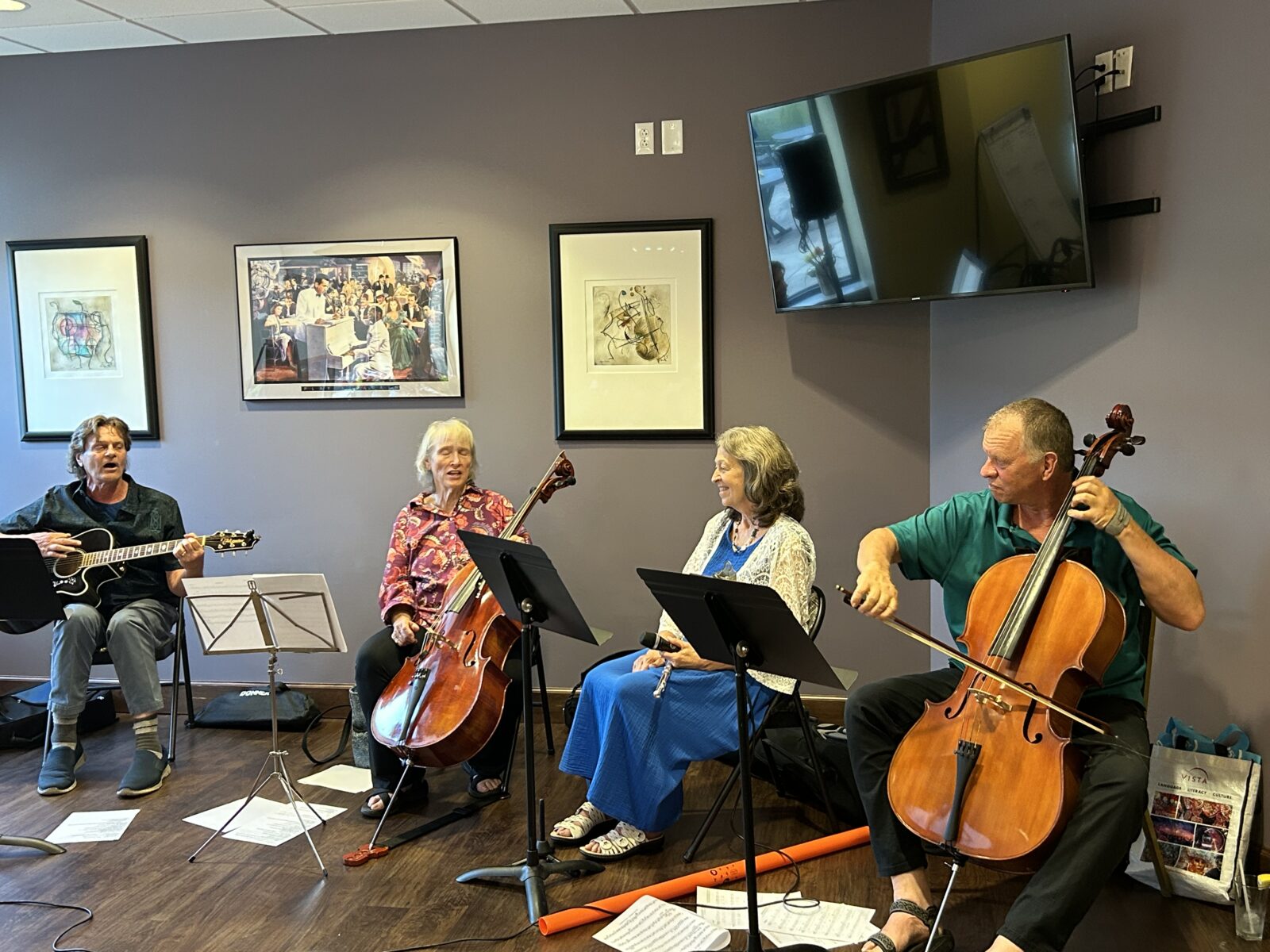
Tremendous Trivia Tunes: A Fundraiser for ACMP
Four members from DeKalb, Illinois tried a new method of fundraising for ACMP. They felt so grateful for ACMP's Home Coaching program and the wonderful teachers in our Coach Directory, that they came up with an innovative idea to give back to our community. They raised a little over $200.00, but the greatest part was how much fun they had doing it.Read More ↗
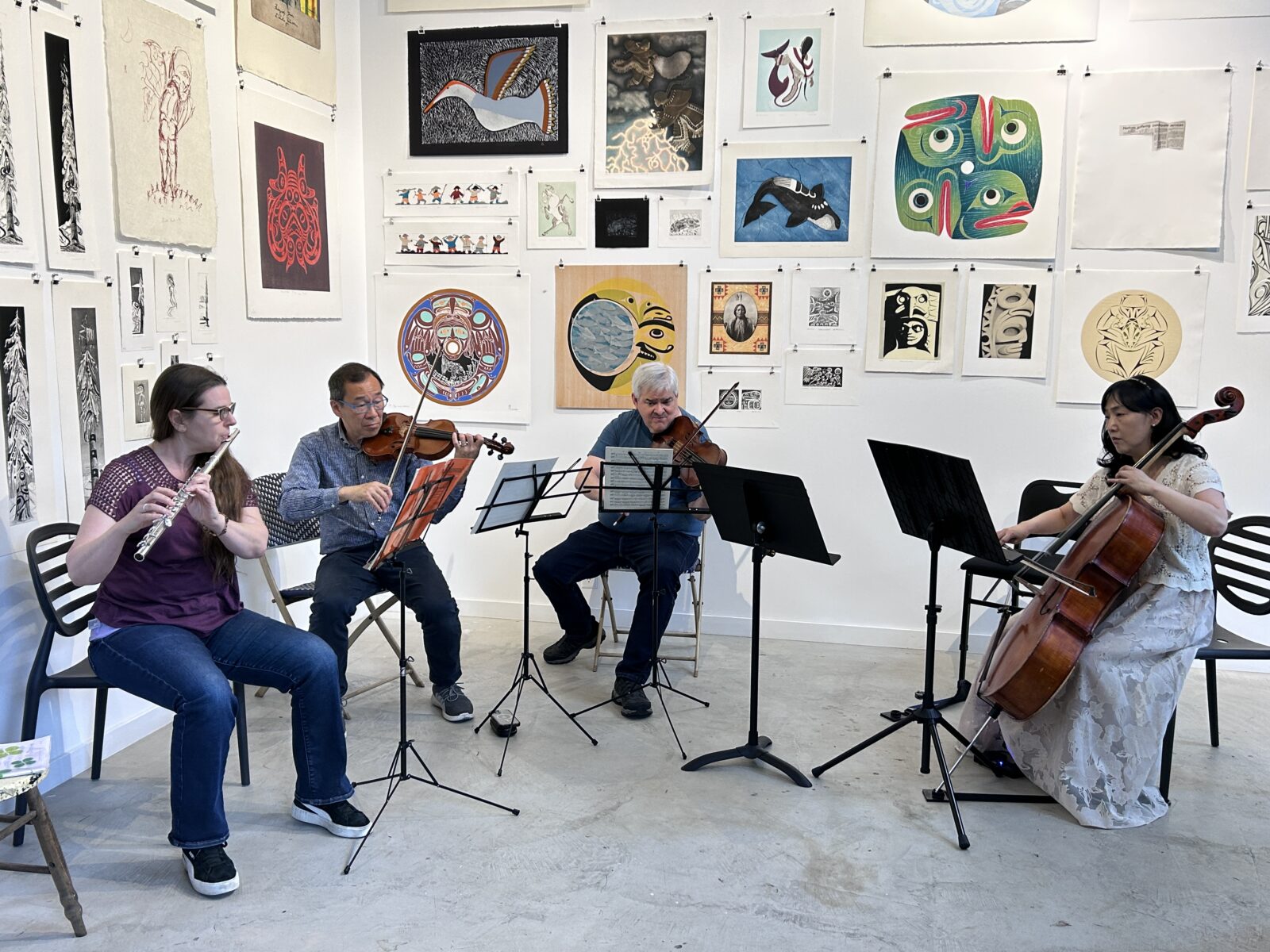
And the Play-Ins continued in June!
With ACMP's rapidly growing community of chamber musicians, Play-In season is never over! Read about two recent Play-Ins in June.Read More ↗
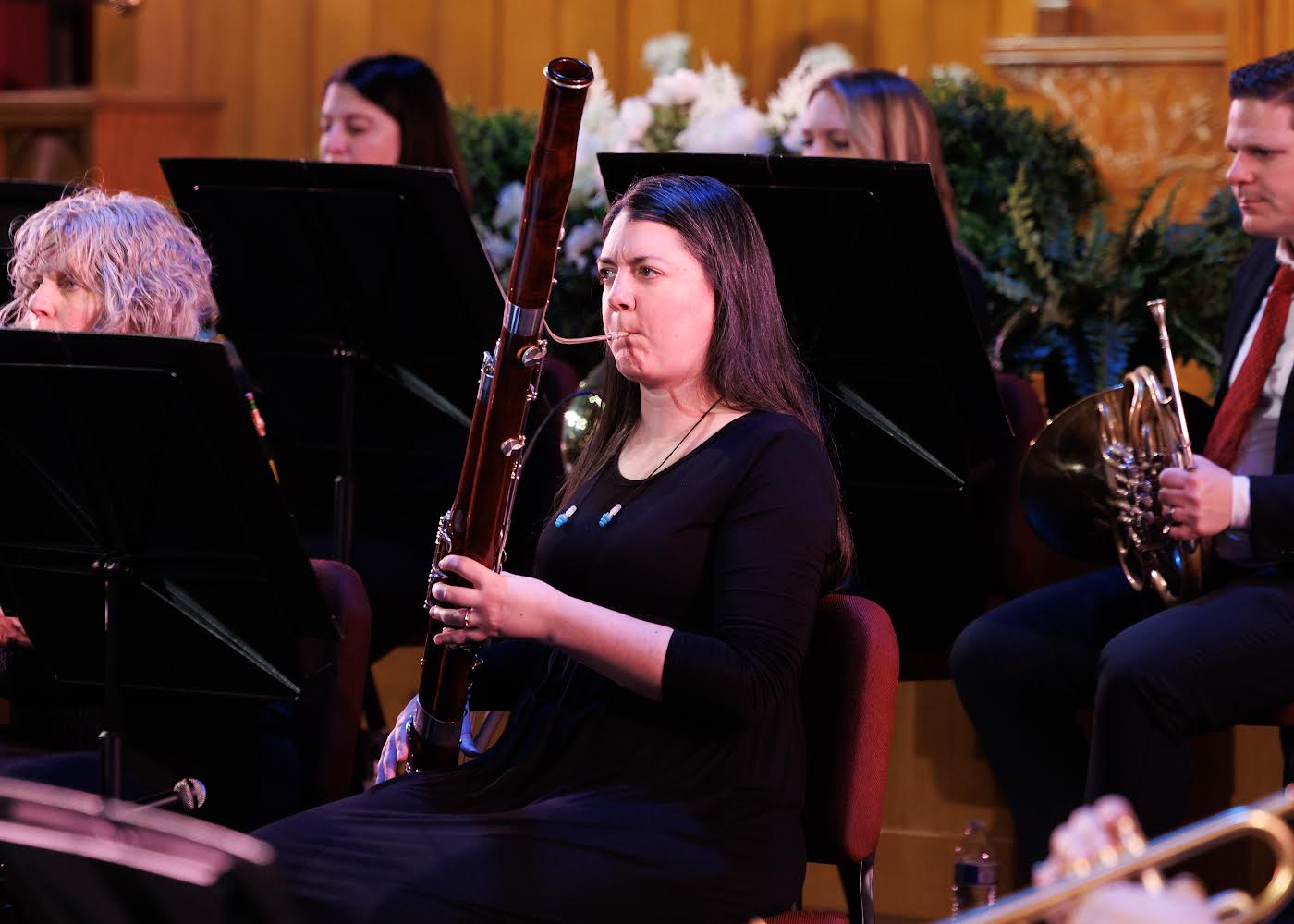
2025 News of Note Puzzle Contest Winner and Answers
Congratulations to bassoonist Jessi Vandagriff for winning this year's News of Note puzzle contest. And read more for the great puzzle answer reveal!Read More ↗
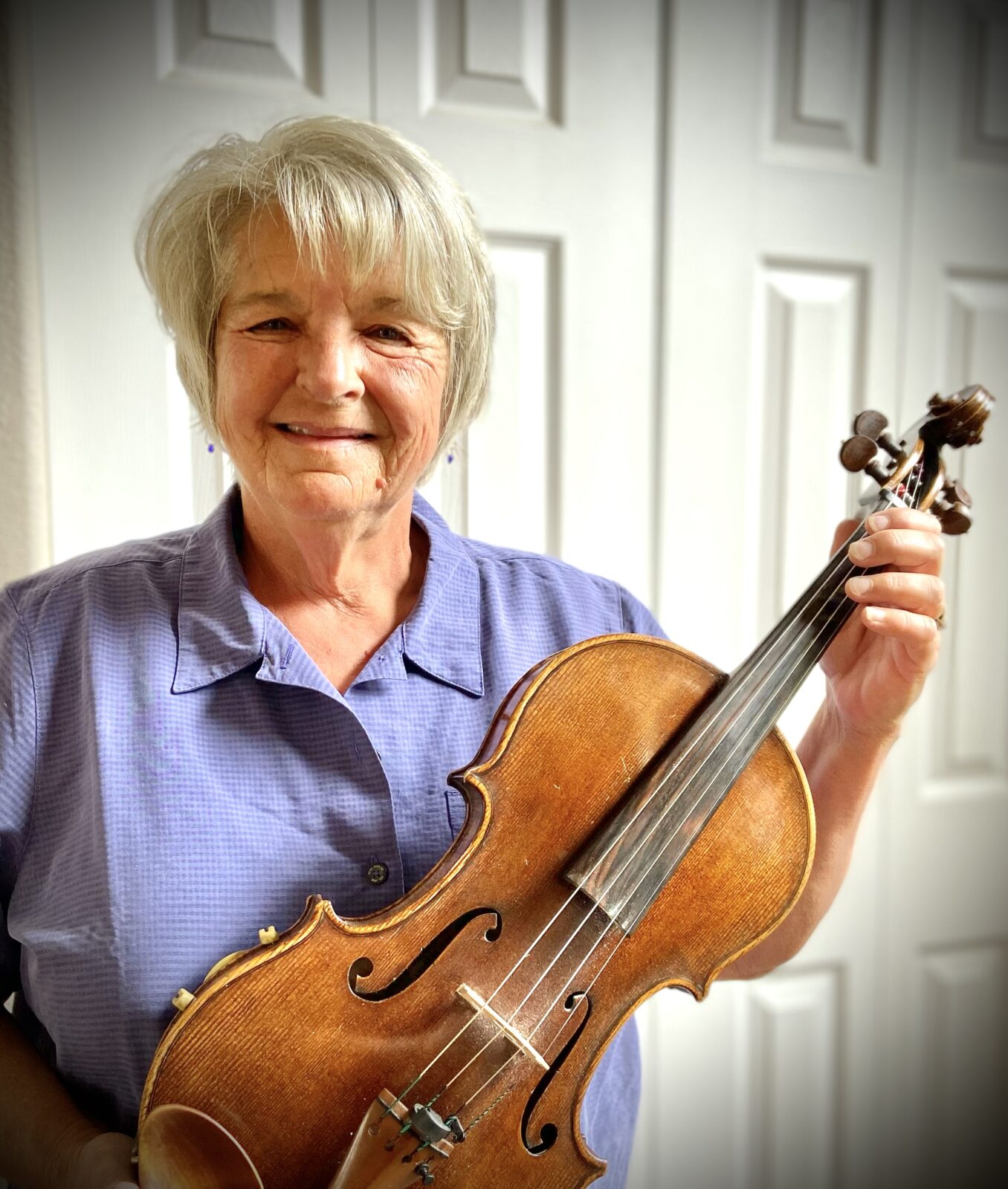
Member of the Month, July 2025: Cheryl Hite
The ranks of ACMP members are filled with professionals who began their college careers with the intent of pursuing music for a living, then for whatever reason moved into another career. Colorado-based violist Cheryl Hite is one of those musicians. A native of Detroit, she enrolled at Indiana University in the 1970s as a double major – biology and viola performance. Read her interview with ACMP Board Chair Bob Goetz.Read More ↗
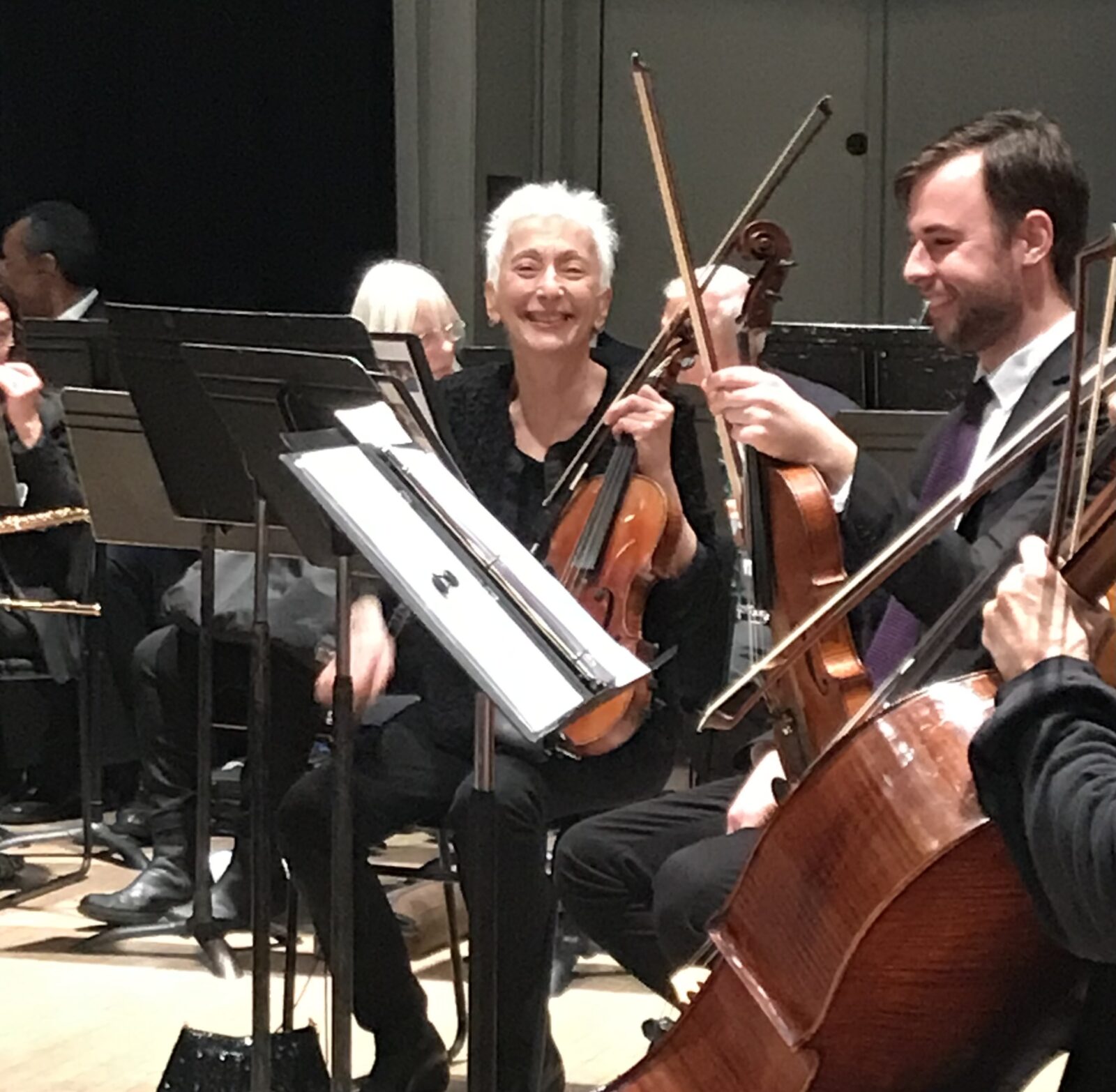
The day my quartet played out of tune and almost got our host evicted
Chamber music can be a high stakes activity - play a bit out of tune, and your host could end up on the street. Read about one such close call in New York City.Read More ↗
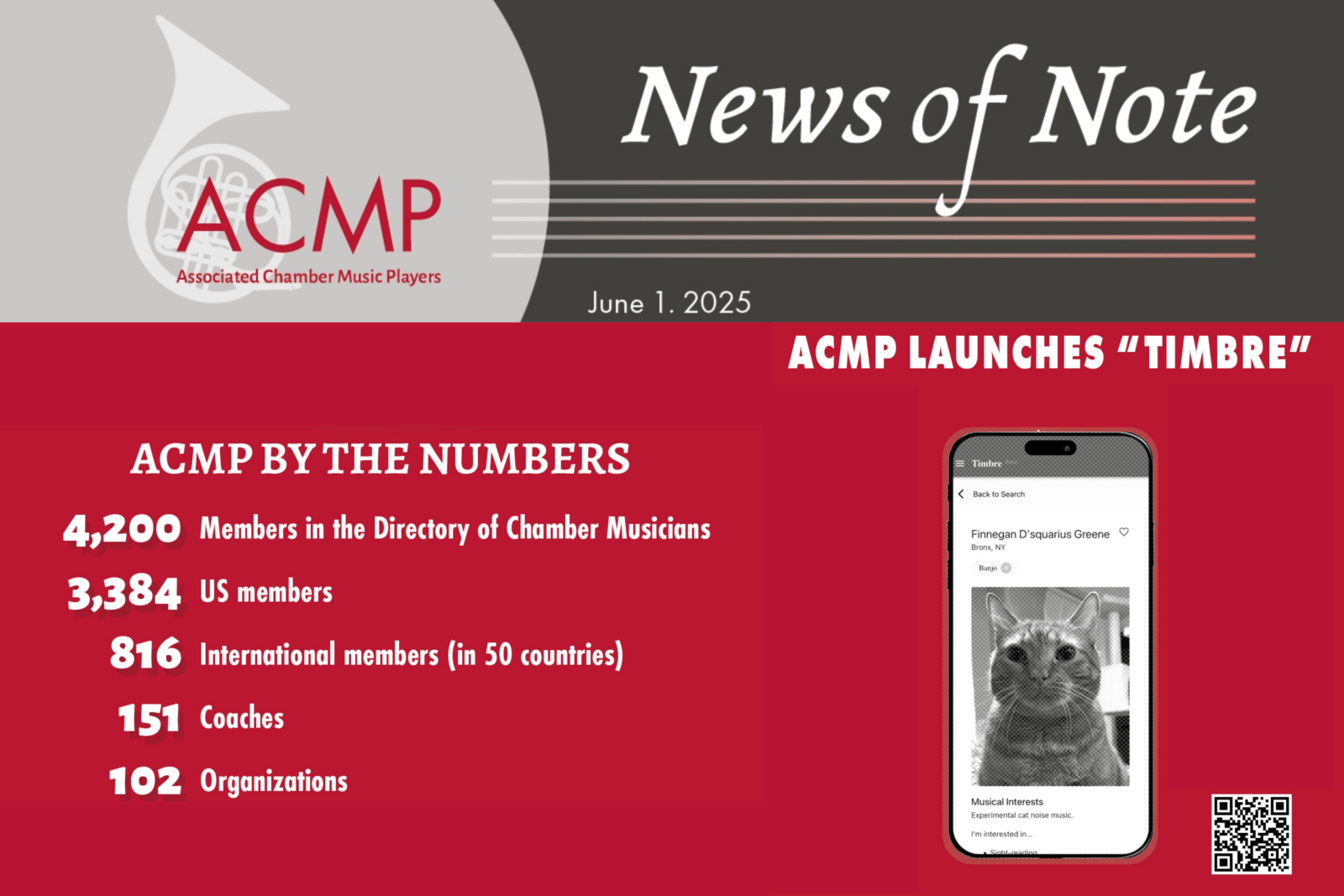
News of Note 2025
It’s that time of year again! The web version of the 2025 News of Note is live, featuring updates from the past year—and some fun extras, including everyone’s favorite: a new puzzle. (Submit your answers by July 1!)Read More ↗
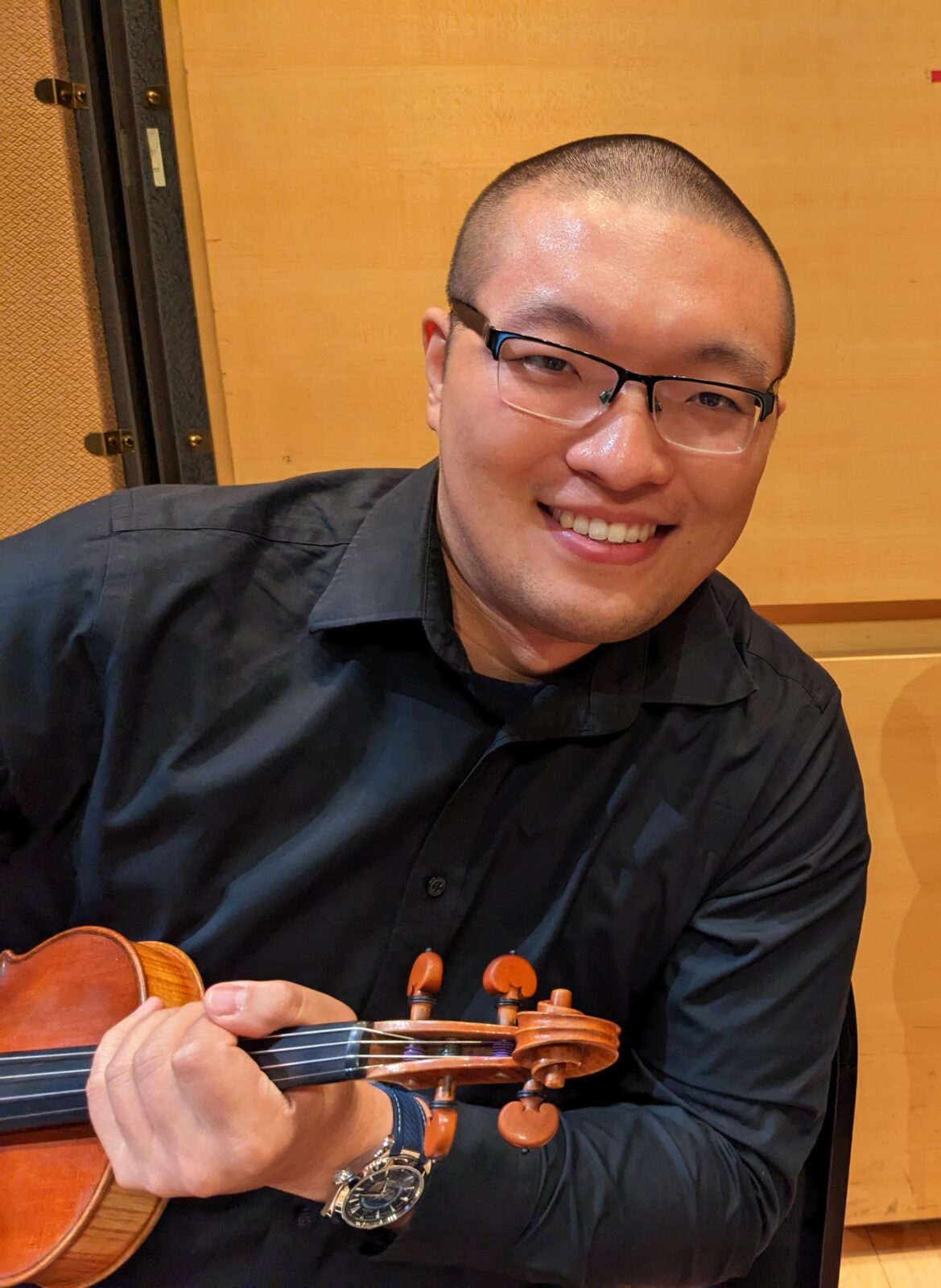
Member of the Month, June 2025: Frank Song
Frank Song, 28, may work remotely as a software engineer, but when it comes to music and the arts, he is all about being there, in person. With the flexibility to travel in his work, he seeks out concerts or museum exhibits in cities far beyond his home in Toronto. And while he’s at it, he takes along his violin to play chamber music. We caught up with Frank on a recent visit to New York, where he played chamber music with people he found through ACMP.Read More ↗

Seasoning for the Seasons
With a taste for adventure and a pinch of whimsy, follow ACMP cellist Tom Cappaert’s lead: stage a chamber concert in a Quito pizza parlor.Read More ↗
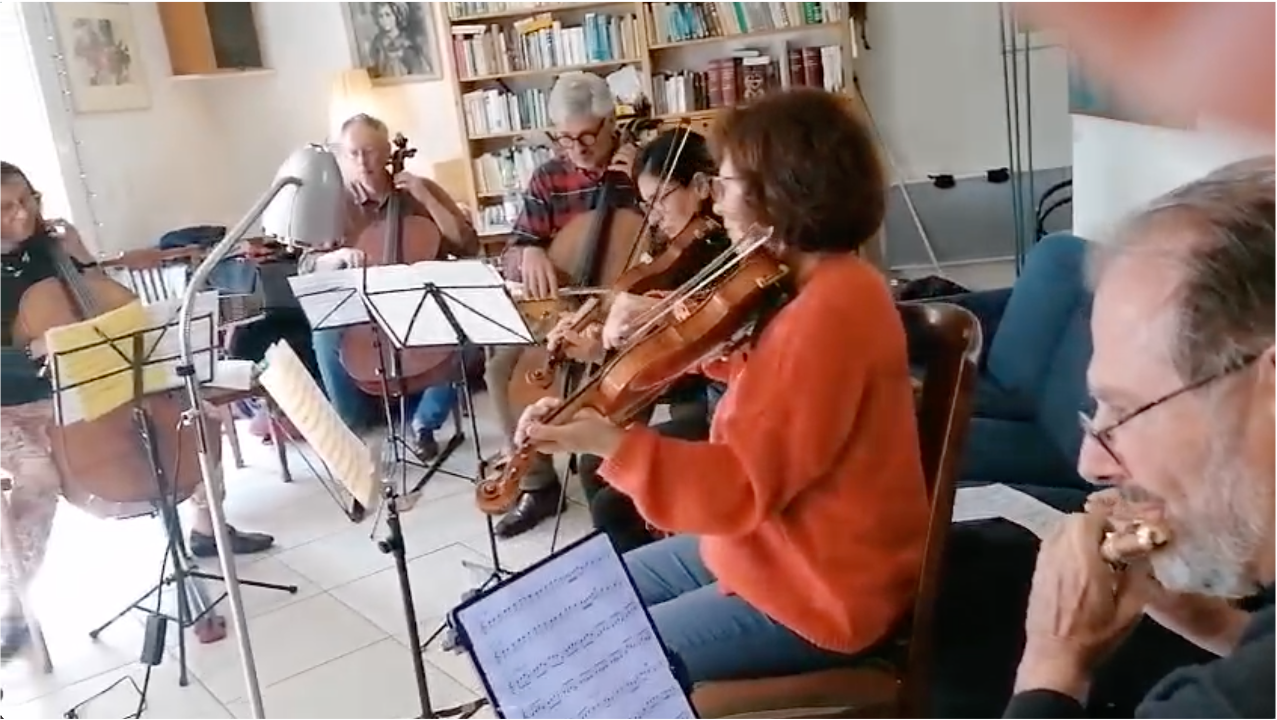
May 2025 Play-In Highlights!
Highlights from just a few Play-Ins during National Chamber Music Month!Read More ↗
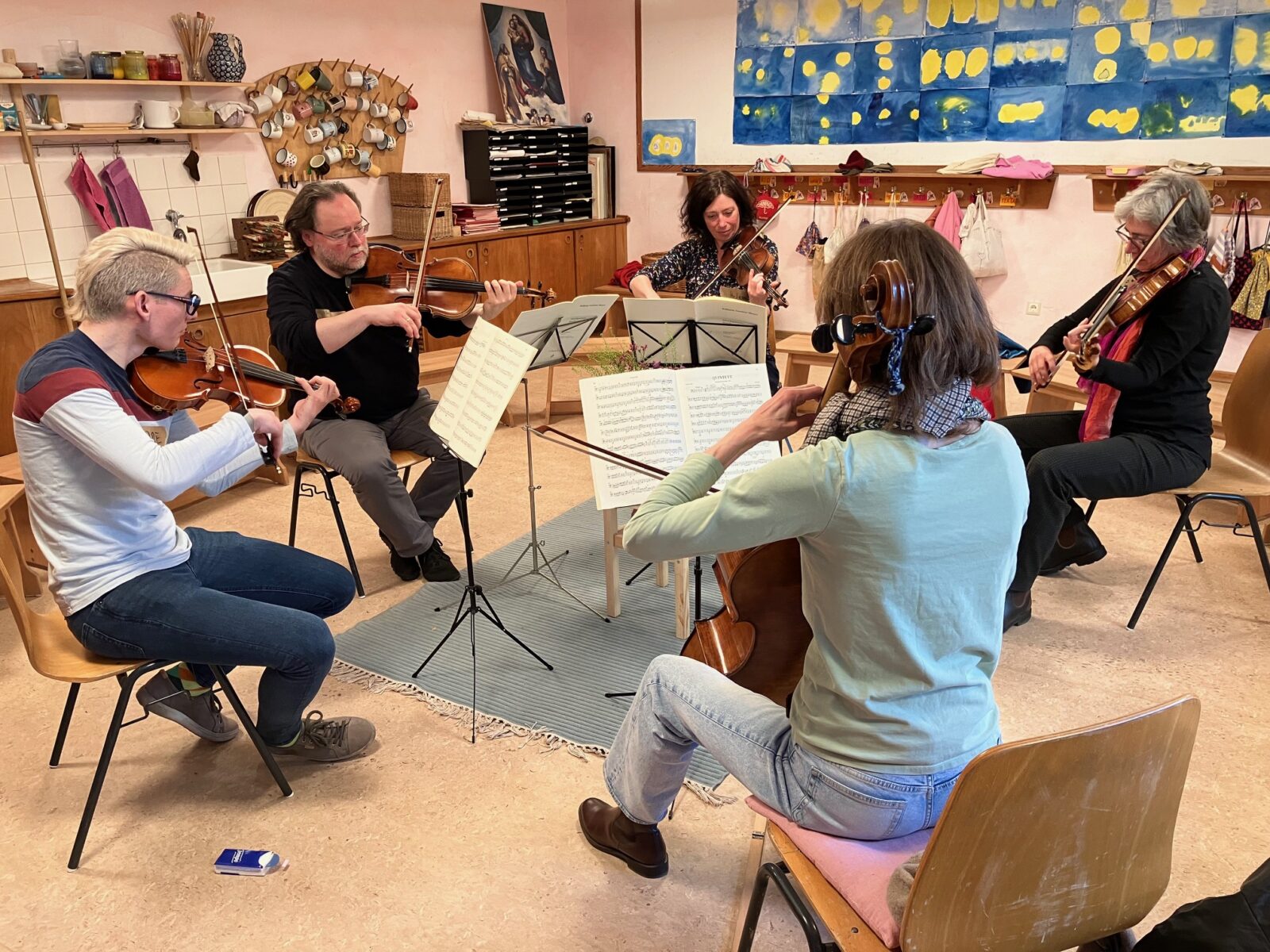
Play-In Report: Berlin Kammermusik Liste
Michael Knoch runs the Berlin Kammermusik Liste, and represents ACMP as its International Ambassador in Germany. He holds at least two Play-Ins a year, and has a unique gift for organizing large Play-Ins with a mix of all instruments and voice. Read about his second Play-In of 2025!Read More ↗